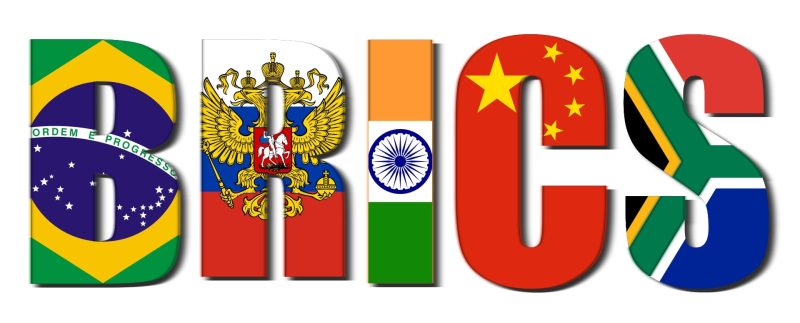In a bid to dominate global growth by 2050, four emerging national economies decided in 2001 to co-operate and partner their efforts in 2001. Known as B.R.I.C., this partnership comprises Brazil, Russia, India, and China. However, South Africa was added as a new member in 2010, bringing the number of partner states to five and turning the acronym from B.R.I.C. to B.R.I.C.S. The partnership has kept its vision of expansion through the addition of new members; a total of 16 countries formally applied to join B.R.I.C.S. between 2022 and 2023, and during the 15th annual B.R.I.C.S. summit, a total of six countries globally expressed an interest in joining the partnership.
67 leaders of different countries were invited to participate in this year’s conference. However, Argentina, Egypt, Ethiopia, Iran, Saudi Arabia, and the United Arab Emirates were given invitations to join the bloc. If these countries agree, their full memberships will take effect on January 1st, 2024.
But while the success of B.R.I.C.S.’ political expansion is imposing, the 15th summit, held in South Africa from August 22-24 2023, witnessed some interesting controversies. Indian prime minister Narendra Modi refused to get off his plane until the South African deputy president welcomed him officially, while Xi Jinping of China unexpectedly did not attend the B.R.I.C.S. business forum where he had been scheduled to speak. Furthermore, while all other heads of B.R.I.C.S. member states were present, Russian foreign minister Sergei Lavrov attended in lieu of Vladimir Putin. President Putin could not attend this year’s summit due the warrant the International Criminal Court issued for his arrest on allegations of crimes against humanity and war crimes after his invasion of Ukraine.
Putin’s arrest warrant is the first to be leveled against the leader of a permanent member of the United Nations Security Council and all 123 member states of the I.C.C. are obliged to detain and transfer Putin if he sets foot on their territory. Obviously, being a member of the I.C.C., South Africa was expected to arrest Putin if he physically attended the summit. This would clearly explain Putin’s decision to instead take part in the summit via video conferencing, were it not for his in mid-July announcement that he would not attend the summit, by “mutual agreement.”
The B.R.I.C.S. summit enables member states to focus on spheres of political and socio-economic co-ordination in which member countries have identified economic complements, business opportunities, and areas of co-operation. Its financial architecture is an eye witness to the good work accomplished so far: the association has established a New Development Bank (N.D.B.), based in Shanghai, headquartered in South Africa, and operated multilaterally by the five B.R.I.C.S. states. The introduction of the N.D.B. also saw the birth of the B.R.I.C.S. contingency reserve arrangement, which is a framework for providing protection against global liquidity pressures. These two great achievements were signed into treaty at the 2014 B.R.I.C.S. summit in Brazil, but became active in 2015 with each possessing an equal distribution of shared in the NDB.
As the seated Chair for this year’s summit, President Cyril Ramaphosa of South Africa focused on the theme “B.R.I.C.S. and AFRICA: Partnership for Mutually Accelerated Growth, sustainable development and inclusive multilateralism.” Five priorities for South Africa in 2023 were outlined:
- Transforming education and skills development for the future.
- Developing a partnership towards an equitable just transition, including managing the risks associated with climate change.
- Strengthening post-pandemic socioeconomic recovery and attainment of the 2030 Agenda on Sustainable Development.
- Unlocking opportunities through the African Continental Free Trade Area.
- Strengthening multilateralism, including reform of global governance institutions and strengthening the meaningful participation of women in peace processes.
Also among the topics discussed are the de-dollarization strategies which will enable the B.R.I.C.S. member states to use their national currencies more instead of the dollar. This is motivated by prevailing geopolitical issues and factors of the geo-economic situation, including the Federal Reserve’s increase in interest rates and Russia’s invasion of Ukraine, both of which made dollar debts and many imports more expensive.
With the focal points mentioned above, B.R.I.C.S. planned to expand its sphere of influence and assist its member states to improve on their local economies and development.
- The B.R.I.C.S. Summit 2023 - December 16, 2023
- Niger Republic: Coup D’État Or Calls For Liberation? - December 6, 2023
- Inhumane Treatment Of Nigerians In China Threatens China-Nigeria Diplomatic Ties - April 15, 2020


